🌍 Frontier Markets News, July 7th 2024
A weekly review of key news from global growth markets

Dear Reader,
If you are enjoying this newsletter please consider upgrading to a paid subscription today. As well as supporting our continued development of sharp, markets-focused coverage and new informational products, paid subscribers will gain exclusive access to our quarterly EM/FM reports that will aggregate insights from 25 key EM-focused institutions.
Sent this by a friend? Sign up here to receive FMN in your inbox every weekend.
By Ken Stibler, Noah Berman and Nojan Rostami. Executive editor: Dan Keeler
Africa
China expands EV manufacturing in Morocco
Morocco is fast becoming a leading hub for Chinese EV battery makers, the AP reports. At least eight have announced new investments in the northwest African nation in the past two years as Morocco leverages its free-trade deals with both the US and the EU.
- Plan to export Moroccan green energy to UK gathers pace (WSJ)
Both Washington and Brussels have announced tariffs on Chinese electric vehicles this year. Those added to US legislation passed in 2022 that gives subsidies to carmakers who produce their inputs in countries that share a free trade agreement with the US and do not source batteries and other materials from China. But neither set of restrictions targets Chinese manufacturers operating in other countries.
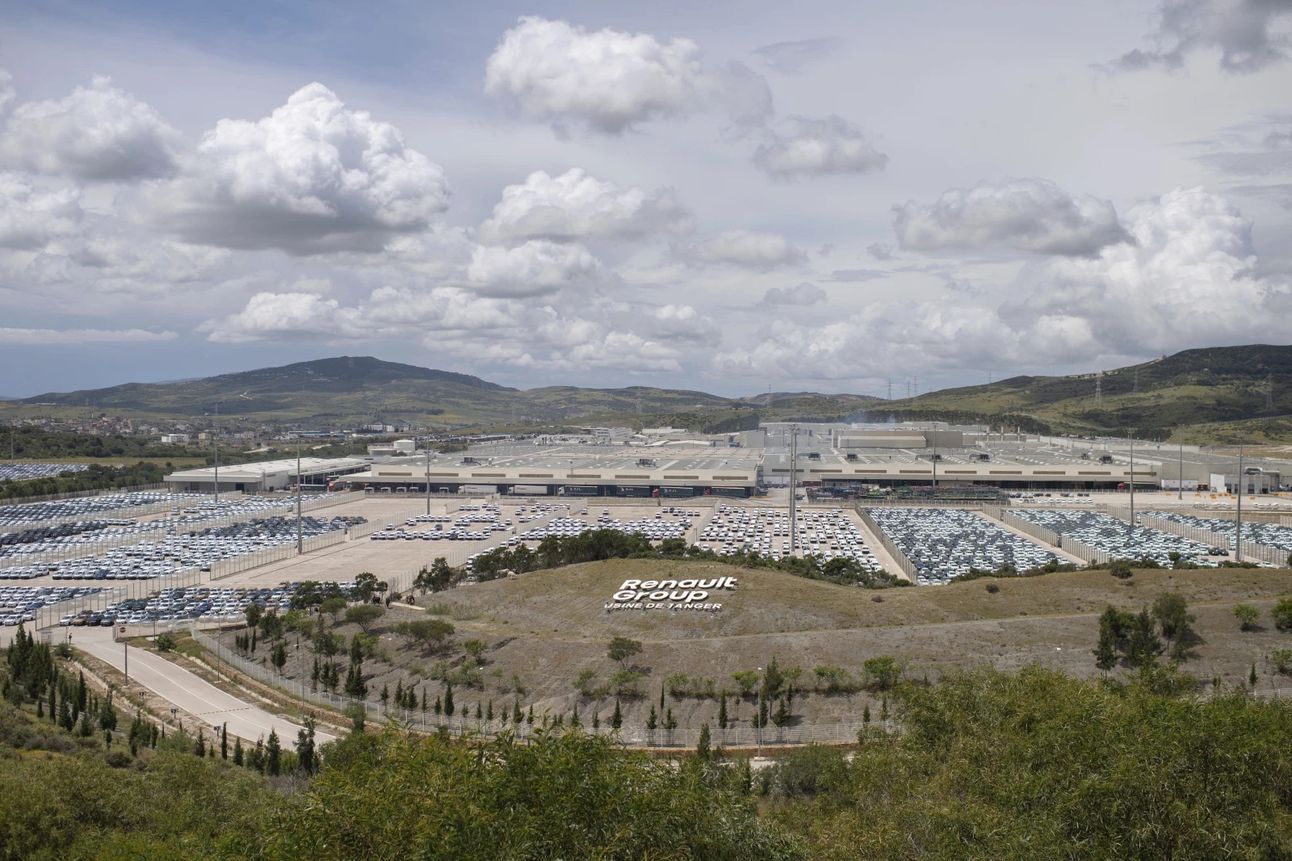
Morocco, which is already the leading car exporter to the EU, shipping some $14 billion worth of vehicles there annually—and is a manufacturing hub for European automakers Renault and Stellantis—is taking advantage of this disconnect.
Chinese EV manufacturers are also expanding more broadly across Africa in response to EU-imposed tariffs, with Neta Auto planning to enter 20 African markets, Nikkei reports.
Egypt signs billions of dollars in deals with EU
European companies signed $45 billion worth of deals with Egyptian partners at a conference last weekend, EU Commission President Ursula von der Leyen said. The companies will look to invest in the hydrogen, water management, construction, chemicals, shipping and aviation sectors, Euractiv reports. Von der Leyen said the deals “will help make Egypt a clean energy hub.”
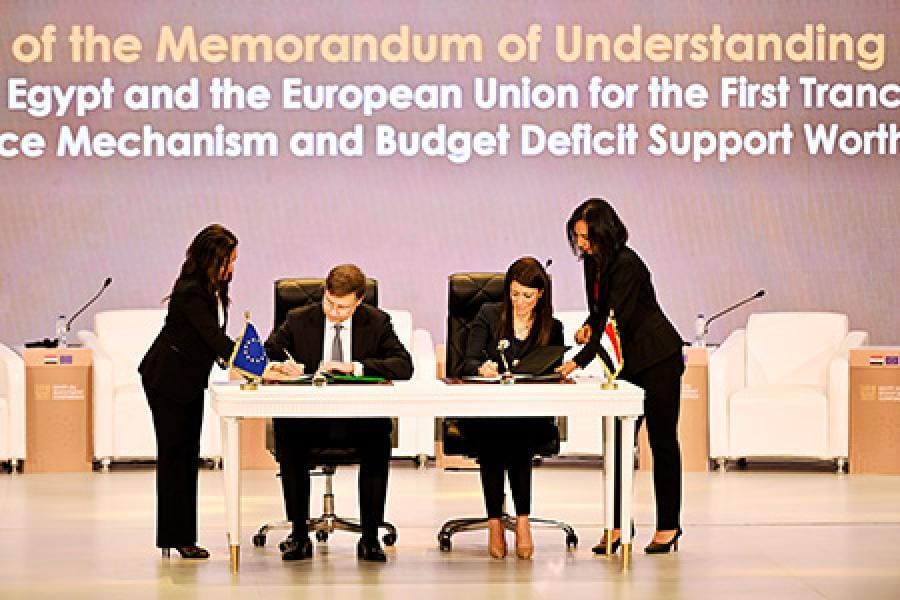
Egypt, which is viewed as a critical partner in resolving the war in Gaza, has won tens of billions in global investment and aid in recent weeks, particularly from Europe. The agreements signed last weekend amount to some four years’ worth of FDI.
The EU also agreed at the conference to provide Egypt with the first €1 billion of the €7.4 billion that it promised the country earlier this year.
DRC completes first ever IMF loan
The IMF this week said it would disburse the final $225 million tranche of the $1.5 loan it agreed to with the Democratic Republic of the Congo three years ago, marking the completion of the southern African nation’s first-ever loan program with the IMF. When it announced the disbursement, however, the multilateral warned DRC faces strong headwinds stemming from insecurity in its eastern region.
“While the growth outlook is generally favorable, risks are tilted to the downside due to the persistent armed conflict in the East and further inflationary pressures stemming from oil and food price volatility,” IMF Deputy Managing Director Kenji Okamura said.
The IMF expects DRC’s economic growth to almost halve this year, from 8.4% last year to 4.7%, where the fund predicts that it will remain for the next five years.
Asia
China and Russia court Central Asia
Competition between Russia and China for influence and business in Central Asia intensified this week as both Chinese President Xi Jinping and Russian President Vladimir Putin joined regional leaders gathered in Kazakhstan’s capital of Astana.
The region has increasingly become a key destination for Chinese investment in recent years, and the influx of yuan has led Central Asian leaders to approve projects that work against Russia’s interests, including a railway that will connect China to Europe while bypassing Russia.
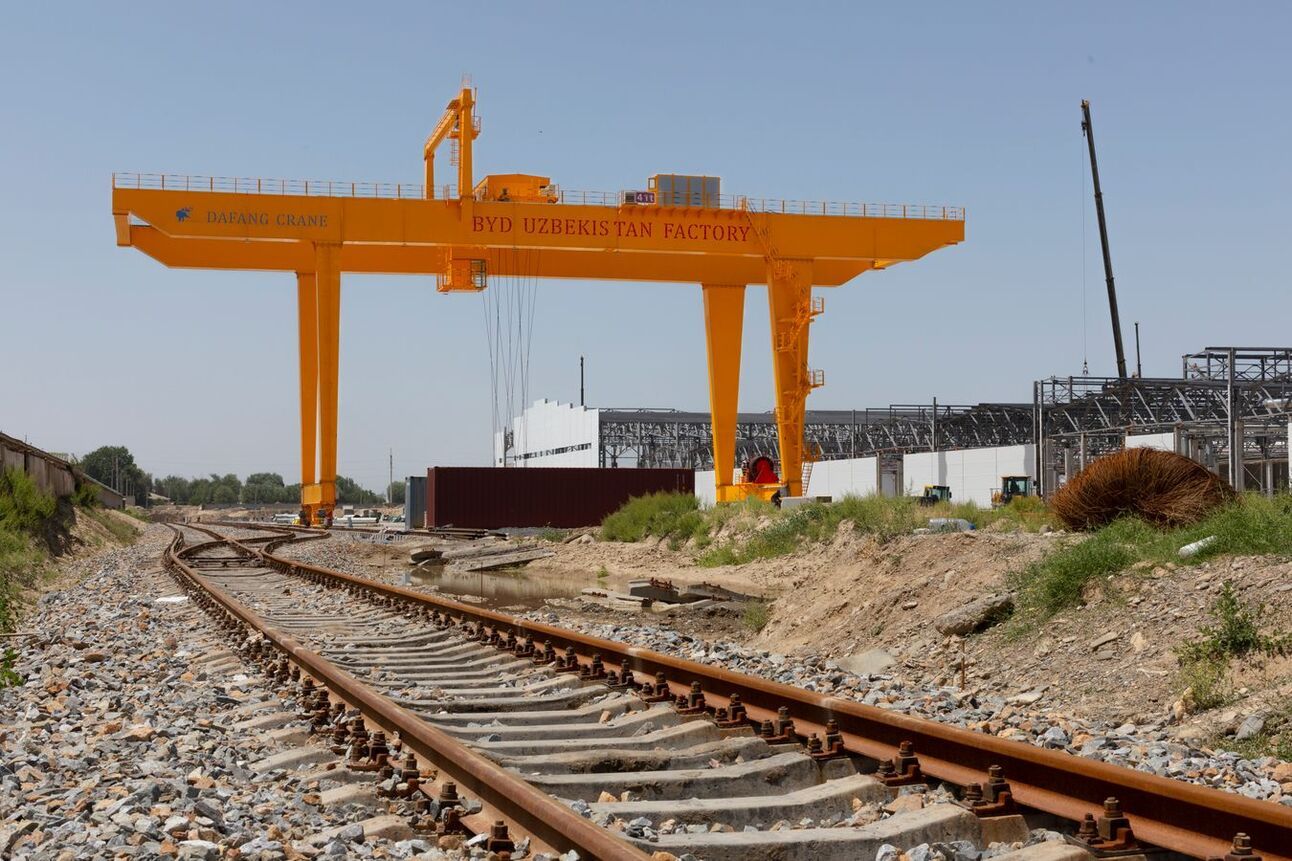
China is also investing in renewable energy projects in the region, potentially limiting the need for Russian natural gas. In Tajikistan, Chinese funding now makes up more than 99% of foreign direct investment, compared to less than half a decade ago, according to the US State Department.
Russia, which considers the former Soviet republics that make up modern Central Asia its backyard, has little financial firepower to counter China’s rising influence in the region due to the war in Ukraine, WSJ reports. Moscow is increasingly reliant on Beijing to fund that war effort.
Sri Lanka debt restructuring accelerates
Sri Lanka wrapped up another $12.5 billion in restructuring deals this week, bringing its two-week restructuring total to more than $20 billion, Reuters reports.
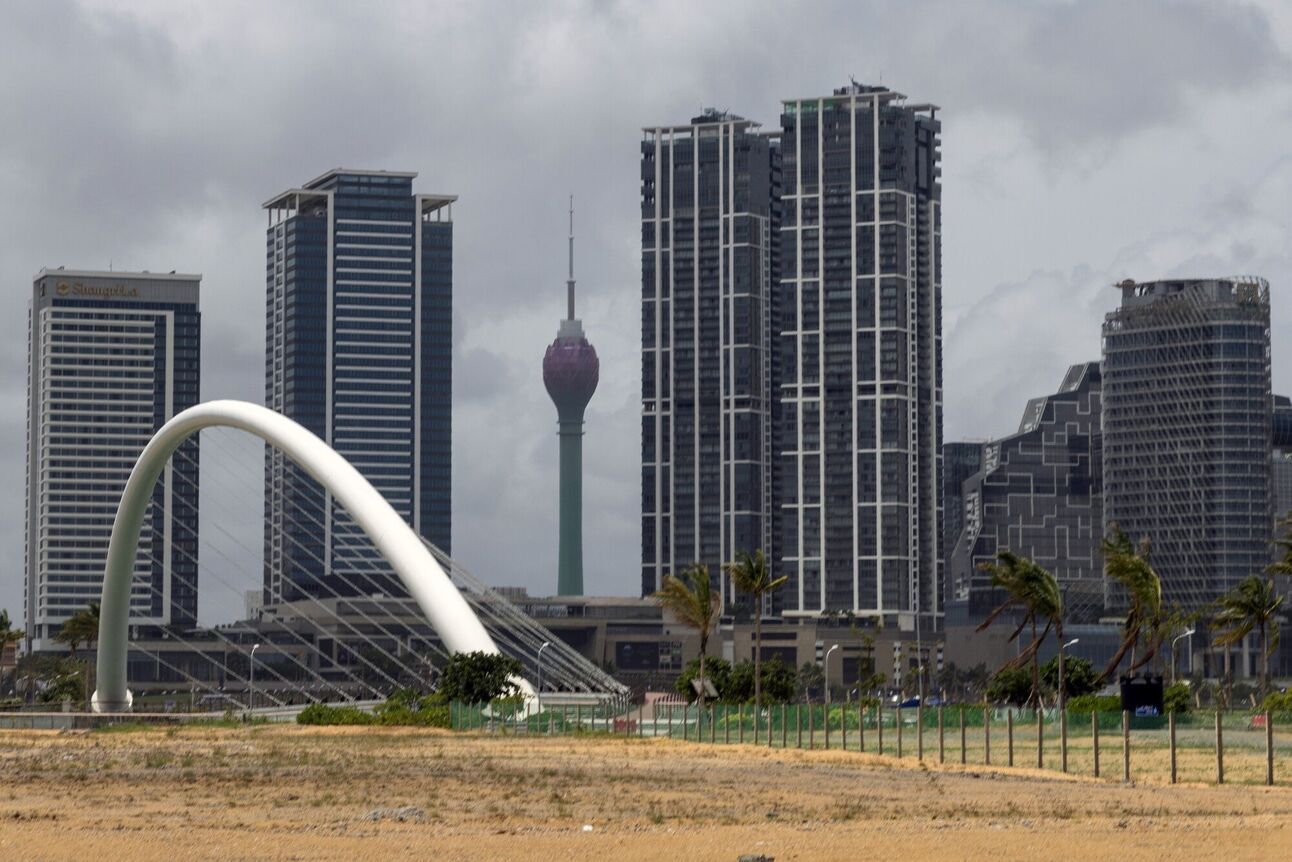
Under the latest deals, which cover about half of the country’s bonds, bondholders agreed to take a 28% haircut on their principal investment, according to a government note published after talks ended on Wednesday. The deal now depends on the approval of Sri Lanka’s bilateral creditors and the IMF, which approved a $2.9 billion loan program for the country in March. Disbursements under that arrangement are contingent on restructuring progress.
Last week, Sri Lanka reached $10 billion worth of deals with China, France, India and other creditors. The country still needs to finalize restructuring on $2.2 billion it owes to the China Development Bank.
Middle East
Iran elects reformist president committed to improving relations with the US
Masoud Pezeshkian, a centrist aligned with Iran’s reformist faction, was elected president of Iran on Friday by a margin of three million votes in a runoff election against hardliner Saeed Jalili, Bloomberg reports. Pezeshkian has publicly committed himself to improving relations with the US and reviving the 2015 Joint Comprehensive Plan of Action—commonly called the Iran nuclear deal—in order to ease sanctions and improve Iran’s economy.
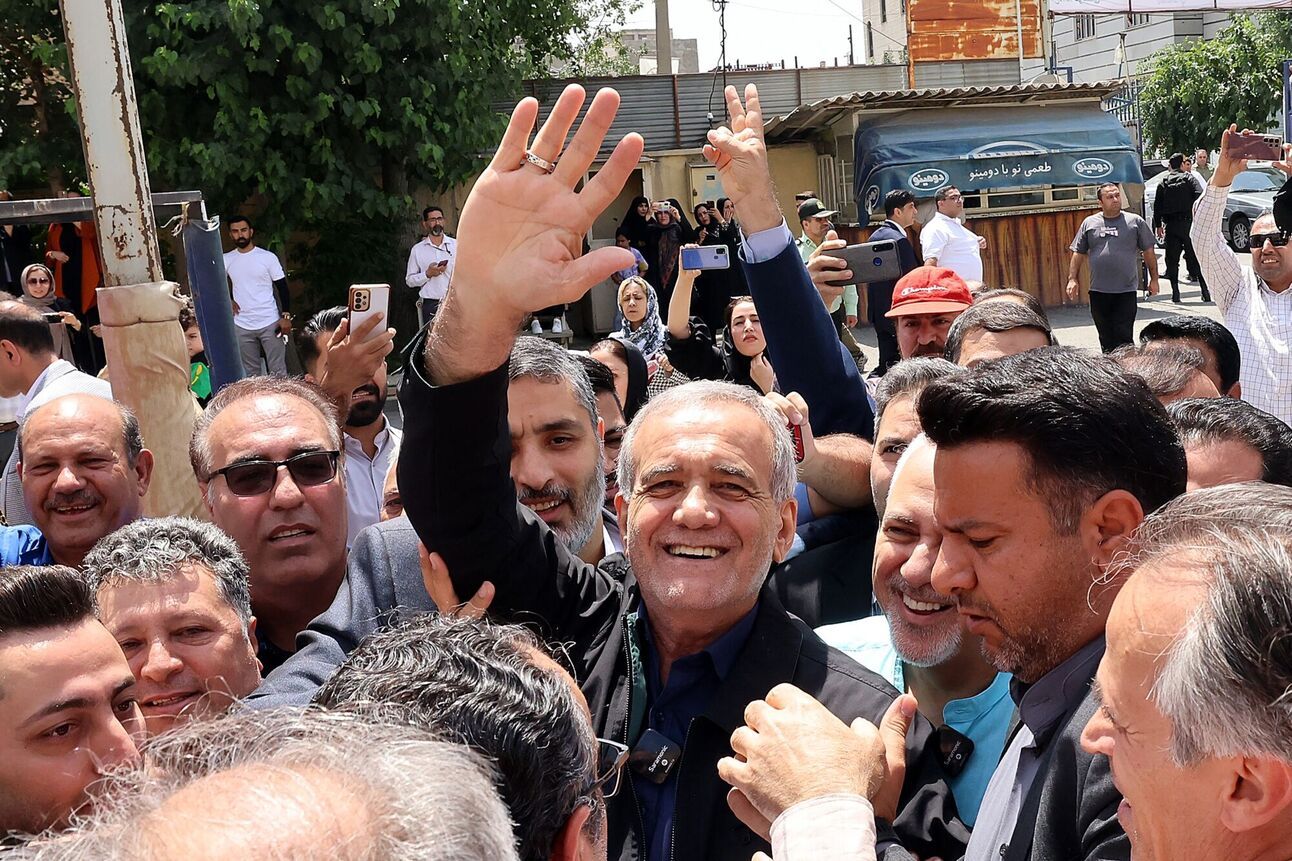
Pezeshkian’s significant margin of victory suggests strong public support in Iran for reform, although the sub-50% turnout rate—the lowest ever recorded for an Iranian presidential election—reflects voter ambivalence towards the country’s political leadership.
There are also questions over whether the promised outreach to the US will bear fruit, given that in Iran’s political system the president has no power over foreign and national security policy, which is entirely in the hands of the Supreme Leader Ayatollah Ali Khamenei.
Turkmenistan and Iran sign deal to supply gas to Iraq
Turkmenistan and Iran are to cooperate on supplying gas to Iraq, having signed a long-term agreement to supply 10 billion cubic meters of gas per year via pipelines in Iran, the AP reports. Iraq receives some 40% of its gas from Iran, which, while affordable, has proven to be an unreliable source of supply given regional tensions and the instability and weakness in Iran’s economy.
Turkmenistan relies heavily on gas exports for its economy, and its landlocked geography makes selling to Iraq via Iranian pipelines the best option for meeting its goal of quadrupling gas exports to 40 billion cubic meters per year, ABC reports. Stringent US sanctions on Iran, which have stalled a similar pipeline project connecting Iran to neighboring Pakistan since its announcement in 2010, could also derail the deal.
Saudi Arabia’s PIF reverses course with $37 billion profit for 2023
Saudi Arabia’s flagship sovereign wealth fund The Public Investment Fund (PIF) has claimed a $37 billion profit for 2023, a sharp turnaround from a loss of over $15 billion in 2022, Reuters reports. Revenues at the PIF doubled to $88.3 billion, driving $25 billion in profits from investment activity and supporting the expansion of its debt stock from $85 billion to $125 billion—part of which can be attributed to an early-2024 push to raise cash and shore-up the PIF’s finances.
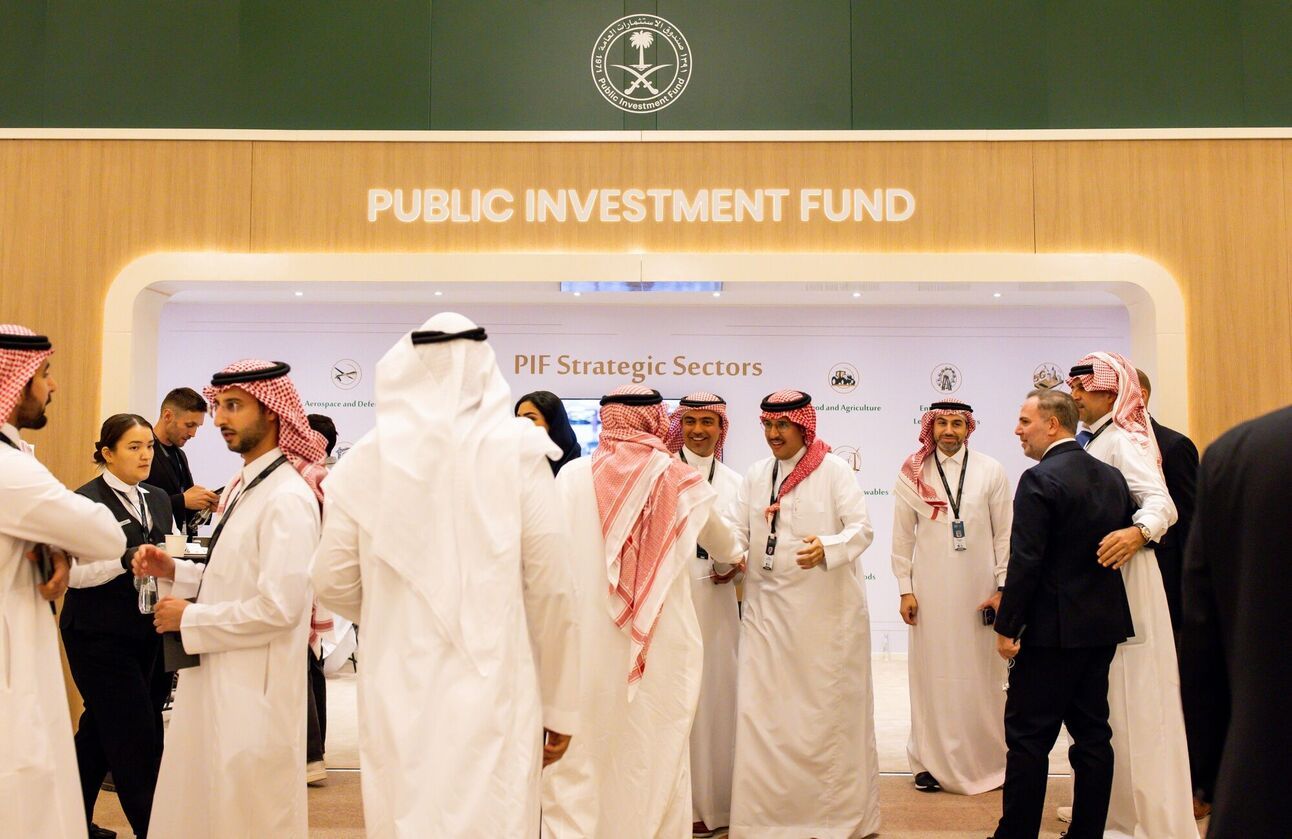
Part of the swing in the PIF’s profitability and cash position is due to increased dividends from Saudi Aramco, the state-owned oil major which has increasingly been called on to support the Kingdom’s cash-burning Vision 2030 megaprojects. These dividends have also helped swell Saudi Arabia’s foreign-currency reserves, which now sit at an 18-month high.
Europe
Emerging Europe sees strong growth despite headwinds
The economies of Central, Eastern and Southeastern Europe are experiencing robust growth in 2024, despite a challenging international environment, according to the latest Summer Forecast from the Vienna Institute for International Economic Studies.
The main driver is a sharp rise in real wages across the region, which is stimulating private consumption, even as a significant portion of the additional disposable income is being saved. EU member states in the region are showing resilience in the face of Germany’s economic slump, with average growth projected at 2.6% in 2024 and 3% in 2025, outpacing the euro area’s expected growth of 0.6% and 1.6%, respectively.
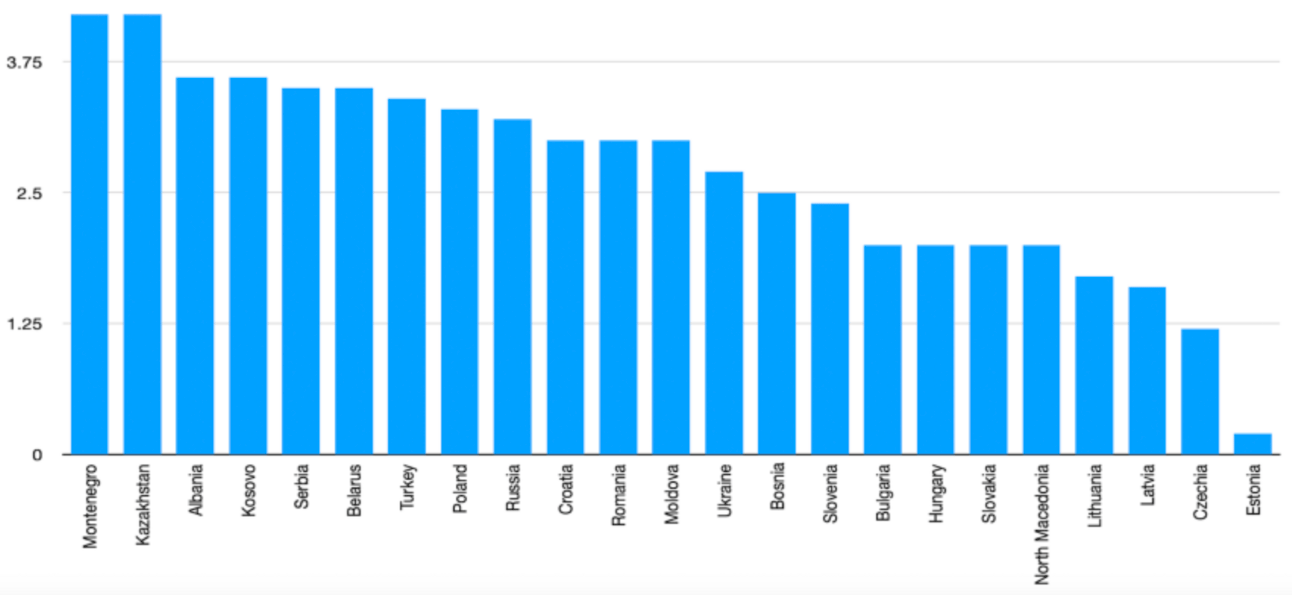
Risks remain, however. A potential victory by Donald Trump in the US presidential election could intensify the trade war between the US and China, and possibly spark one with the EU, which would hit the small, open economies of Central and Eastern Europe particularly hard. Additionally, the prospect of a far-right government in France led by Marine Le Pen’s National Rally could complicate Western support for Ukraine, making it difficult for the war-torn country to receive the urgent assistance it needs.
Despite these challenges, the overall economic outlook for the region remains positive, with strong growth expected in the Western Balkans, Turkey and Kazakhstan, while Ukraine’s recovery is anticipated to slow down due to the ongoing destruction of its energy infrastructure by Russian missile attacks.
Latin America
Bolivia hopes to revive struggling energy sector
After years of underinvestment, Bolivia’s state-owned energy company, YPFB, is seeking partners to revitalize the nation’s struggling oil and gas sector, Reuters reports. The country’s gas output has halved from its peak a decade ago, while oil production is at its lowest since the 1990s, crimping the landlocked nation’s export earnings and putting pressure on its foreign-exchange reserves.
- Bolivian president orchestrated a ‘self-coup,’ Morales claims (AP)
In an interview with Reuters this week, YPFB’s President Armin Dorgathen acknowledged that political missteps have deterred investors, leading to the steep decline in production, which in turn has shone a spotlight on the $800 million Bolivia spends annually on gasoline imports. To ease the pressure, the country is turning to direct purchases from OPEC+ producers, including Russia.
Dorgathen said YPBF was also pushing existing partners, including Spain’s Repsol, Brazil’s Petrobras and France’s Total, to invest more in developing resources in Bolivia. “We are working to attract financing from various sides,” he said.
Global
Rebounding frontier markets create world-beating stock performances
Frontier markets have delivered some of the best stock market performances globally this year, the FT reports. Investors are betting that reforms in countries such as Argentina and Pakistan will help them overcome their currency woes and pave the way for a strong recovery.
Argentina’s Merval index has surged 53% in dollar terms, leading Latin American bourses, while Pakistan’s stock gauge has outperformed most in Asia.
Investors are being drawn to frontier and smaller emerging markets by low valuations and the prospects for economic recovery in countries such as Sri Lanka and Turkey, which are bringing their costly foreign-currency debts and double-digit inflation rates under control. Pakistan’s benchmark KSE100 index, for instance, has nearly doubled in dollar terms since June last year when the country secured a $3 billion IMF loan and avoided default.
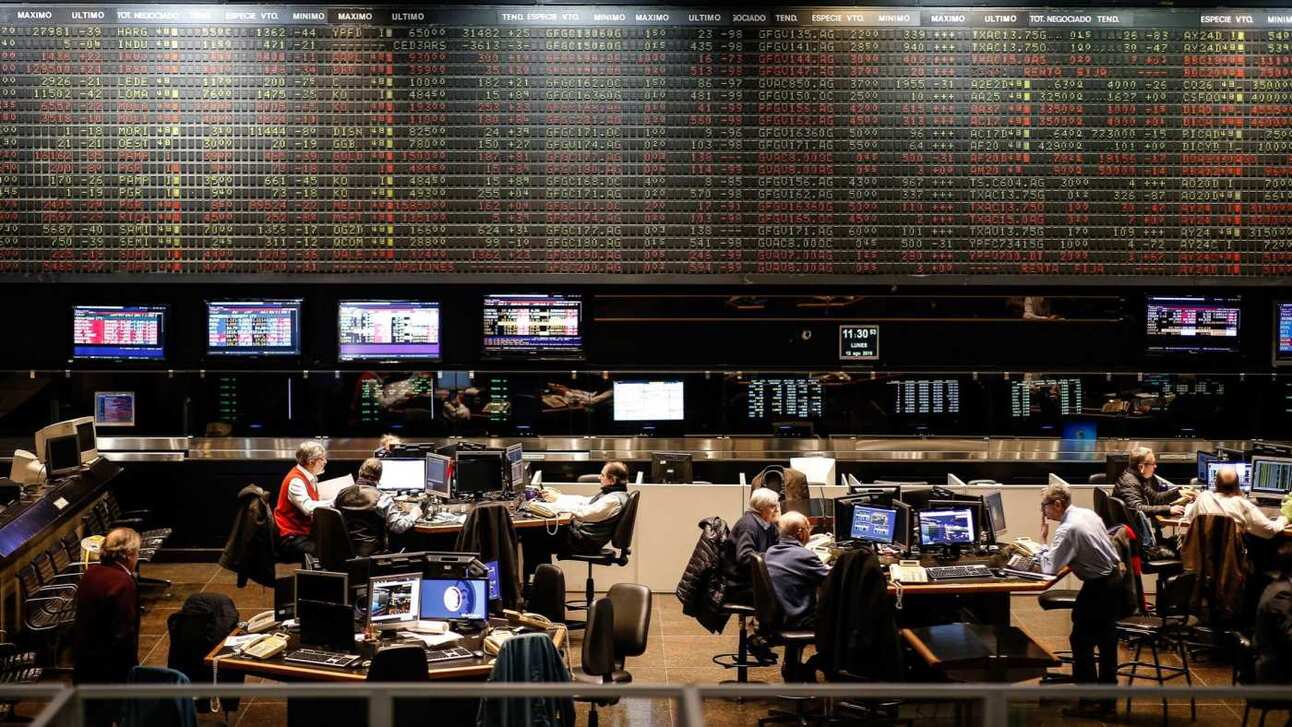
Despite the promising reforms and stock market rallies, economic conditions remain challenging for the average citizen in many of these countries, though. Inflation in many is still high compared to other emerging markets, and governments face resistance to plans to raise taxes to pay off debts. In Kenya, for example, President William Ruto had to withdraw a finance bill aimed at complying with an IMF bailout after deadly protests against the proposed tax measures.
Nevertheless, the speed at which some leaders, such as Argentina’s President Javier Milei, are implementing economic reforms has caught the attention of investors seeking to diversify their exposure away from larger emerging markets.
What We’re Reading
Nigeria sees foreign investors return as yields surge (The Africa Report)
Nigeria wins bid to host Africa Energy Bank (Offshore Technology)
Ethiopia and Somalia seek to resolve differences in Turkey-mediated talks (Al-Monitor)
New front opens in Sudan war (WSJ)
Zambia to get $200 million from World Bank for drought response (Bloomberg)
Botswana turns to Texas to turn its economy into a cattle powerhouse (The Africa Report)
Egypt swears in new cabinet as economic challenges fuel public discontent (AP)
Tunisia announces October presidential election (Al Jazeera)
Mauritania reelects president (BBC)
Vietnam finalizes draft plan to attract foreign investment (Reuters)
Laos debt mounts despite China “doing its best” (Bloomberg)
Thailand ramps up push into data centers (Nikkei)
Indonesia struggles to recover after cyberattack hits 282 agencies (Nikkei)
Indonesia opens Southeast Asia’a first EV battery plant (FT)
Economic growth drives wage increases across Southeast Asia (Nikkei)
China endorses Kazakhstan BRICS accession (Nikkei)
UN envoys meet with Afghanistan’s Taliban in Doha at conference that excludes women (NYT)
Asia is set to embrace protectionism in face of China’s overcapacity (Nikkei)
Turkey’s Erdogan opens door to revived relationship with Syria’s Assad (Al Monitor)
Kuwait projects $62b budget revenues over next four years (Economy Middle East)
Bulgaria euro adoption faces further delay amid political fragmentation (Fitch)
Panama’s new president launches ambitious agenda (Americas Quarterly)
Belize crackdown on gang-related killings leads to dozens of arrests (The Guardian)
All red numbers as Argentina enters “Phase 2” of its economic plan (Mercopress)
Emerging markets are losing their attraction for family offices (FT)
We are committed to providing FMN readers with a free weekly digest of politically unbiased, succinct and clear news and information from frontier and small emerging markets.
Please consider becoming a paid supporter to help cover some of our costs and support our continued development of sharp markets-focused coverage and new informational products. Paid subscribers will also gain exclusive access to our quarterly EM/FM report that aggregates EM insights from 25 major banks, international institutions and consultancies.






